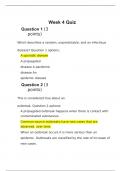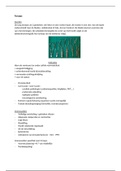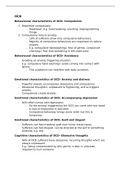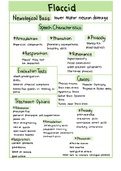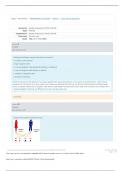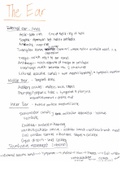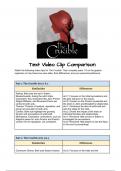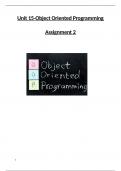LCR4802
SUMMARY.
, 1
THE SOUTH AFRICAN HEALTH CARE SYSTEM
In South Africa we distinguish between practitioners who are employed by
the State and those who practice for their own account.
Private practices and hospitals attend to those who can afford to pay for
their services, by their own funds or their medical aid scheme.
A patient, who seeks the services of a private practitioner, enters into a
direct relationship with him and must remunerate him privately = FREE
ENTERPRISE SYSTEM and the state isn’t a party to the agreement. BUT
this contract is limited as the law puts certain limits on the contract
between the doctor and the patient (e.g. where the patient assumes risk for
negligent treatment). Thus we can’t be called a free enterprise system.
Besides S27 of the Constitution – no one has an absolute right to health
care.
There is NO National Health care service in SA, but provision has been
made for state and provincial hospitals and clinics.
The National Health Act (S4(1)): empowers the minister of health to
prescribe conditions, regarding which people are eligible for free health
care services at a public health establishment.
S4 (3): of the NHA: state clinics and health centers provided by the state
must provide:
q Pregnant and lactating woman and children under 6 who aren’t
members of a medical aid with free health care
q All people (except members of medical aid schemes) and their
dependents and all people getting compensation for an occupational
disease with free primary health care services
q Woman, subject to the Choice of Termination of Pregnancy Act, with
free terminations of pregnancy.
The National Health Department hopes to make membership of medical
aid schemes more affordable by introducing a National Health Insurance
system. This will however, be expensive to implement.
The NHIS is aimed at ensuring that all South Africans have access to
health care.
This system will be funded from the taxes paid by the higher income
earners in society and administered by the public sector.
Critical Law Studies cc (c)
, 2
THE CONTRACT BETWEEN DOCTOR AND PATIENT
A patient in consulting a doctor enters into a contractual relationship with
him.
A doctor in private practice is a free agent or independent consultant and
can accept or refuse patients as he chooses. The exception to this is S27,
dire emergency.
The contract entered into is in a tacit agreement where the doctor
undertakes to diagnose and treat the patient in a normal way. Any
unusual procedures must firstly be discussed with the patient. The
undertaking of this agreement does not mean that the doctor will treat the
patient personally. He can refer the patient to a specialist.
By undertaking a case, a doctor does not guarantee that the patient will be
cured.
A medical practitioner can refuse to treat anyone who is physically or
verbally abusive subject to section 27.
Once a treatment has commenced a doctor may not simply abandon the
patient.
Medical fees
Medical fees must be reasonable. The doctor must furnish the patient with
a detailed account within a reasonable period even where an account was
rendered to a medical scheme.
MUTUAL CONTRACTUAL RELATIONS BETWEEN DOCTORS – HOW
DOCTORS PRACTICE TOGETHER
Partnership
Partners share profits and losses.
Advantage is that if a partner falls ill he does not lose his income because
he continues to share in the income generated by the other partners.
Disadvantages are that relations may become strained if one of the
partners does not pull his weight and the insolvency of one of the partners
may also create problems.
Associate Practice
An agreement by which facilities are shared (an alternative).
Doctors are not sharing in both profit and loss but each practices for his
own profit, yet they share certain facilities, e.g. rooms, equipment etc.
Doctors in “association” are mutually available for each other’s patients.
Critical Law Studies cc (c)
, 3
Company
In terms of the Act, corporate practice, that is, a registered company is
generally prohibited for doctors. The Minister of Health may, on the
recommendation of the Health Professions Council, exempt any juristic
person, from any of the provisions.
Requirements
• The company must be incorporated and registered as a profit
company.
• The company’s memorandum must provide that directors shall be
liable, together with the company, for the debts and liabilities of the
company incurred during their term of office.
• Only doctors and members of supplementary health service
professions registered, can be shareholders.
• A greater measure of continuity as far as possession.
• There could also be some tax advantages.
Collaborative Agreement
Companies, have come into being to facilitate coordination of services in
the field of primary health care = may own, lease or sublease rooms to, for
e.g. a clinic. This has become as a medical and health network.
Objective: is to facilitate the access of patients to a variety of medical
practitioners and related health-care providers located in one center. The
doctors are not employed by the company itself (illegal) but will lease
rooms.
Such a company will then enter into agreements with medical schemes in
terms of which the members of the medical scheme will have access to
health-care providers at the centre at a fixed reduced rate. These
agreements are known as “capitation”. This means that the medical
scheme pays to the company a pre-negotiated fixed fee.
Critical Law Studies cc (c)
SUMMARY.
, 1
THE SOUTH AFRICAN HEALTH CARE SYSTEM
In South Africa we distinguish between practitioners who are employed by
the State and those who practice for their own account.
Private practices and hospitals attend to those who can afford to pay for
their services, by their own funds or their medical aid scheme.
A patient, who seeks the services of a private practitioner, enters into a
direct relationship with him and must remunerate him privately = FREE
ENTERPRISE SYSTEM and the state isn’t a party to the agreement. BUT
this contract is limited as the law puts certain limits on the contract
between the doctor and the patient (e.g. where the patient assumes risk for
negligent treatment). Thus we can’t be called a free enterprise system.
Besides S27 of the Constitution – no one has an absolute right to health
care.
There is NO National Health care service in SA, but provision has been
made for state and provincial hospitals and clinics.
The National Health Act (S4(1)): empowers the minister of health to
prescribe conditions, regarding which people are eligible for free health
care services at a public health establishment.
S4 (3): of the NHA: state clinics and health centers provided by the state
must provide:
q Pregnant and lactating woman and children under 6 who aren’t
members of a medical aid with free health care
q All people (except members of medical aid schemes) and their
dependents and all people getting compensation for an occupational
disease with free primary health care services
q Woman, subject to the Choice of Termination of Pregnancy Act, with
free terminations of pregnancy.
The National Health Department hopes to make membership of medical
aid schemes more affordable by introducing a National Health Insurance
system. This will however, be expensive to implement.
The NHIS is aimed at ensuring that all South Africans have access to
health care.
This system will be funded from the taxes paid by the higher income
earners in society and administered by the public sector.
Critical Law Studies cc (c)
, 2
THE CONTRACT BETWEEN DOCTOR AND PATIENT
A patient in consulting a doctor enters into a contractual relationship with
him.
A doctor in private practice is a free agent or independent consultant and
can accept or refuse patients as he chooses. The exception to this is S27,
dire emergency.
The contract entered into is in a tacit agreement where the doctor
undertakes to diagnose and treat the patient in a normal way. Any
unusual procedures must firstly be discussed with the patient. The
undertaking of this agreement does not mean that the doctor will treat the
patient personally. He can refer the patient to a specialist.
By undertaking a case, a doctor does not guarantee that the patient will be
cured.
A medical practitioner can refuse to treat anyone who is physically or
verbally abusive subject to section 27.
Once a treatment has commenced a doctor may not simply abandon the
patient.
Medical fees
Medical fees must be reasonable. The doctor must furnish the patient with
a detailed account within a reasonable period even where an account was
rendered to a medical scheme.
MUTUAL CONTRACTUAL RELATIONS BETWEEN DOCTORS – HOW
DOCTORS PRACTICE TOGETHER
Partnership
Partners share profits and losses.
Advantage is that if a partner falls ill he does not lose his income because
he continues to share in the income generated by the other partners.
Disadvantages are that relations may become strained if one of the
partners does not pull his weight and the insolvency of one of the partners
may also create problems.
Associate Practice
An agreement by which facilities are shared (an alternative).
Doctors are not sharing in both profit and loss but each practices for his
own profit, yet they share certain facilities, e.g. rooms, equipment etc.
Doctors in “association” are mutually available for each other’s patients.
Critical Law Studies cc (c)
, 3
Company
In terms of the Act, corporate practice, that is, a registered company is
generally prohibited for doctors. The Minister of Health may, on the
recommendation of the Health Professions Council, exempt any juristic
person, from any of the provisions.
Requirements
• The company must be incorporated and registered as a profit
company.
• The company’s memorandum must provide that directors shall be
liable, together with the company, for the debts and liabilities of the
company incurred during their term of office.
• Only doctors and members of supplementary health service
professions registered, can be shareholders.
• A greater measure of continuity as far as possession.
• There could also be some tax advantages.
Collaborative Agreement
Companies, have come into being to facilitate coordination of services in
the field of primary health care = may own, lease or sublease rooms to, for
e.g. a clinic. This has become as a medical and health network.
Objective: is to facilitate the access of patients to a variety of medical
practitioners and related health-care providers located in one center. The
doctors are not employed by the company itself (illegal) but will lease
rooms.
Such a company will then enter into agreements with medical schemes in
terms of which the members of the medical scheme will have access to
health-care providers at the centre at a fixed reduced rate. These
agreements are known as “capitation”. This means that the medical
scheme pays to the company a pre-negotiated fixed fee.
Critical Law Studies cc (c)

